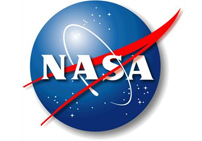NASA Mentioned in Republican Presidential Debate
 Transcript of Republican Presidential Debate – NASA Excerpt, CNN
Transcript of Republican Presidential Debate – NASA Excerpt, CNN
“KING: All right, let’s continue the conversation, but we’ll come back to this if we have to. Let’s go to Jean Mackin in Hancock. She has a question.
MACKIN: Thanks, John. This question goes out to Speaker Gingrich. Next month, the space shuttle program is scheduled to retire after 30 years, and last year, President Obama effectively killed government-run space flight to the International Space Station and wants to turn it over to private companies. In the meantime, U.S. astronauts would ride Russian spacecraft at a cost of $50 million to $63 million a seat. What role should the government play in future space exploration?
GINGRICH: Well, sadly — and I say this, sadly, because I’m a big fan of going into space and I actually worked to get the shuttle program to survive at one point — NASA has become an absolute case study in why bureaucracy can’t innovate.
If you take all the money we’ve spent at NASA since we landed on the moon and you had applied that money for incentives to the private sector, we would today probably have a permanent station on the moon, three or four permanent stations in space, a new generation of lift vehicles. And instead, what we’ve had is bureaucracy after bureaucracy after bureaucracy and failure after failure.”
Update: NASA insider: Some truth to Gingrich’s barb, CNN
“Why so quiet? Some NASA officials suspect Gingrich may be letting us know that the emperor has no clothes.
Some insiders are wondering if NASA is operating with an outdated management paradigm better suited to the 1960s Apollo era rather than the 21st century.”
“I think it’s a tragedy, because younger Americans ought to have the excitement of thinking that they, too, could be part of reaching out to a new frontier.
You know, you’d asked earlier, John, about this idea of limits because we’re a developed country. We’re not a developed country. The scientific future is going to open up, and we’re at the beginning of a whole new cycle of extraordinary opportunities. And, unfortunately, NASA is standing in the way of it, when NASA ought to be getting out of the way and encouraging the private sector.
KING: Is there any candidate who would step in and say, no, this is vital to America’s identity, this is vital to America’s innovation, I want the government to stay in the lead here when it comes to manned space flight? Nobody?
[King looks for a show of hands, none of the candidates raises a hand]
PAWLENTY: Yeah, I think the space program has played a vital role forward the United States of America. I think in the context…
KING: But can we afford it going forward?
PAWLENTY: In the context of our budget challenges, it can be refocused and reprioritized, but I don’t think we should be eliminating the space program. We can partner with private providers to get more economies of scale and scale it back, but I don’t think we should eliminate the space program.
KING: In a sentence — in a sentence or two?
(CROSSTALK)
GINGRICH: John, you mischaracterized me. I didn’t say end the space program. We built the transcontinental railroads without a national department of railroads. I said you could get into space faster, better, more effectively, more creatively if you decentralized it, got it out of Washington, and cut out the bureaucracy. It’s not about getting rid of the space program; it’s about getting to a real space program that works.
ROMNEY: I think fundamentally there are some people — and most of them are Democrats, but not all — who really believe that the government knows how to do things better than the private sector.
KING: All right, let’s go down to the…
ROMNEY: And they happen to be wrong. And… (CROSSTALK)
KING: All right, the role of government — we’ll continue on the role of government. I’m sorry — Josh, please.”


